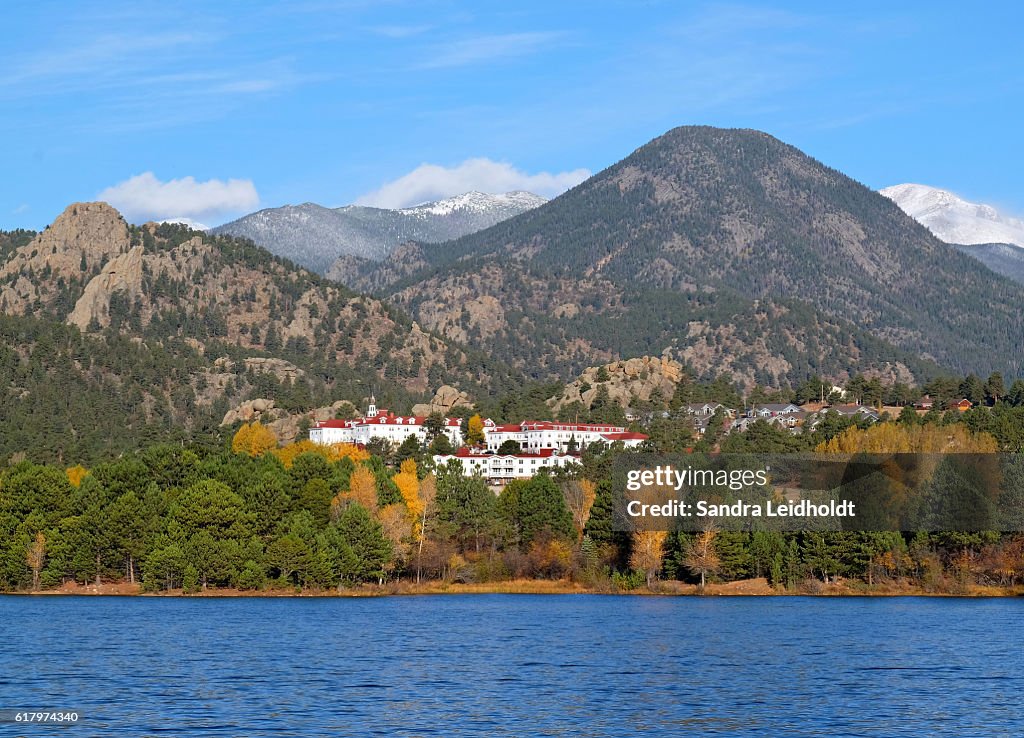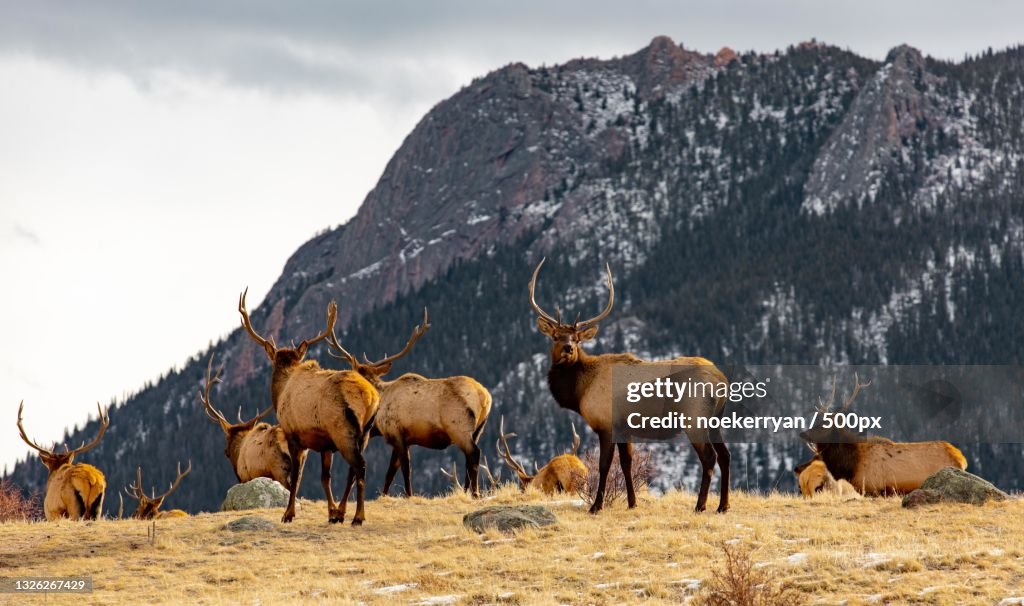The town of Estes Park is located in the state of Colorado, USA. It is situated in the Front Range of the Rocky Mountains and is known for its proximity to Rocky Mountain National Park. The elevation of Estes Park varies depending on the specific location within the town, but it generally ranges between approximately 7,500 and 8,000 feet (2,286 to 2,438 meters) above sea level.
Estes Park has an elevation of 7500 ft (2300 meters).
- Age: 106 years
- Population: 5,880 (2021)
- Area code: Area code 970
- Metro population: 359,066 (Metropolitan statistical area)
- Mayor: Wendy Koenig-Schuett
- Weather: 71°F (22°C), Wind SE at 10 mph (16 km/h), 42% Humidity
Is Estes Park higher elevation than Denver?
Yes, Estes Park is at a higher elevation than Denver. While Estes Park is situated in the Rocky Mountains at an elevation of approximately 7,500 to 8,000 feet (2,286 to 2,438 meters) above sea level, Denver is located on the High Plains of Colorado at an elevation of approximately 5,280 feet (1,609 meters) above sea level. So Estes Park is at a higher elevation than Denver by around 2,000 to 2,500 feet (609 to 762 meters).
What is the elevation of Lake Estes?
Lake Estes, located near Estes Park in Colorado, has an elevation of approximately 7,524 feet (2,293 meters) above sea level. It is a reservoir formed by Olympus Dam on the Big Thompson River and offers recreational activities such as fishing, boating, and picnicking.
What is the highest point in Estes Park Colorado?
The highest point in Estes Park, Colorado is Longs Peak, which is located within Rocky Mountain National Park. Longs Peak stands at an elevation of 14,259 feet (4,346 meters) above sea level. It is a popular destination for hikers and climbers, but reaching the summit requires technical skills and experience. Longs Peak is known for its challenging and unpredictable weather conditions, so climbers should be well-prepared and exercise caution when attempting to summit the peak.
Why is Estes Park famous?
- Proximity to Rocky Mountain National Park: Estes Park is the gateway town to Rocky Mountain National Park, one of the most renowned national parks in the United States. The park attracts millions of visitors each year with its stunning mountain scenery, diverse wildlife, hiking trails, and outdoor recreational opportunities.
- Scenic Beauty: Nestled in the Rocky Mountains, Estes Park offers breathtaking views and picturesque landscapes. Visitors can enjoy panoramic vistas of snow-capped peaks, alpine lakes, and meadows. The town itself is surrounded by natural beauty, making it a popular destination for nature lovers and outdoor enthusiasts.
- Historic Stanley Hotel: The Stanley Hotel is an iconic landmark in Estes Park. Built in 1909, this grand hotel has a rich history and is known for its unique architecture and stunning location. It gained additional fame as the inspiration for Stephen King's novel "The Shining" and has attracted visitors interested in its haunted reputation.
- Outdoor Recreation: Estes Park provides ample opportunities for outdoor activities such as hiking, mountain biking, fishing, camping, wildlife viewing, and horseback riding. With its numerous trails and proximity to Rocky Mountain National Park, it is a paradise for outdoor adventurers.
- Events and Festivals: Estes Park hosts various events and festivals throughout the year, including the Rooftop Rodeo, Scandinavian Midsummer Festival, Elk Fest, and the Estes Park Winter Festival. These celebrations showcase local culture, music, art, and cuisine, attracting visitors from far and wide.
How to Prepare for an Adventure at Altitude Like Estes Park?
- Acclimatize: Give yourself time to adjust to the altitude by arriving a few days early if possible. Gradually increase your physical activity and avoid intense exertion during the first couple of days to allow your body to adapt.
- Stay Hydrated: Drink plenty of fluids, preferably water, to combat the effects of altitude. Staying hydrated can help alleviate symptoms of altitude sickness and aid in acclimatization.
- Take it Slow: Pace yourself and avoid rapid ascents. Ascend gradually, allowing your body to adapt to the decreasing oxygen levels. If you're hiking or climbing, follow a recommended altitude gain rate to minimize the risk of altitude sickness.
- Know the Symptoms: Familiarize yourself with the symptoms of altitude sickness, which may include headache, dizziness, nausea, fatigue, and shortness of breath. If you experience severe symptoms, descend to a lower elevation and seek medical attention if necessary.
- Pack Proper Clothing and Gear: Dress in layers to accommodate changing weather conditions at higher altitudes. Carry appropriate gear such as sturdy footwear, warm clothing, sunscreen, a hat, sunglasses, and a rain jacket. Don't forget essentials like a first aid kit, navigation tools, and extra food and water.
- Maintain a Healthy Diet: Eat a well-balanced diet with sufficient carbohydrates for energy and consider foods rich in iron and antioxidants to support oxygen-carrying capacity and recovery. Avoid excessive alcohol and caffeine consumption, as they can contribute to dehydration.
- Fitness and Conditioning: Improve your cardiovascular fitness before heading to high altitudes. Engage in regular aerobic exercises such as hiking, running, cycling, or swimming to enhance your endurance and lung capacity.
- Consult with a Healthcare Professional: If you have any pre-existing medical conditions or concerns, consult with a healthcare professional before embarking on an adventure at high altitude. They can provide personalized advice and may recommend medications such as acetazolamide to prevent altitude sickness.
- Be Mindful of Altitude-Related Hazards: Familiarize yourself with the potential hazards associated with high altitudes, such as rapid weather changes, increased UV exposure, and the risk of avalanches or falling rocks. Stay informed about local conditions and heed any warnings or advisories.
- Travel with a Companion: Whenever possible, travel with a companion or join a guided tour. Having someone with you can provide assistance in case of emergencies and offer support if you experience altitude-related challenges.








No comments:
Post a Comment